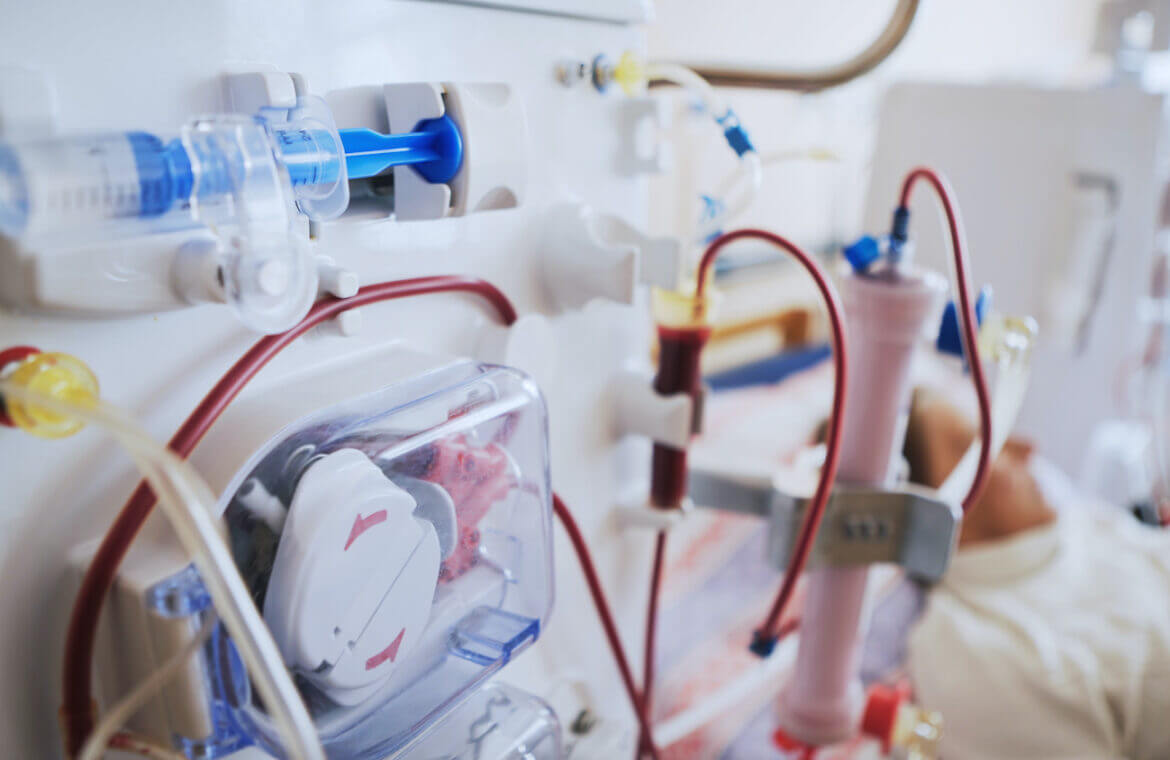Hemodialysis: A Lifeline for Kidney Disease Patients
Hemodialysis is a vital treatment for individuals with kidney failure. It is a process that filters blood to remove waste products and excess fluid that the kidneys can no longer eliminate on their own. This procedure is crucial for maintaining a patient’s overall health and well-being.
What is Hemodialysis?
Hemodialysis is a medical procedure designed to replace kidney function in individuals whose kidneys are no longer capable of adequately filtering waste products, toxins, and excess fluids from the blood. It is one of the primary treatments for end-stage kidney disease (ESKD) and severe chronic kidney disease (CKD).
The process involves diverting blood from the patient’s body to a machine, known as a dialyzer, which filters the blood before returning it to the body. Hemodialysis can significantly improve quality of life and prolong survival for individuals with advanced kidney disease.
How Hemodialysis Works
Hemodialysis involves a machine that filters the blood, removing waste products and excess fluid. The patient’s blood is pumped out of their body through a tube, called a catheter, into the dialysis machine. The machine filters the blood and returns it to the body. This process is typically done three times a week, for several hours each session.
The Dialysis Process
- Access Creation: A vascular access point, such as a fistula or graft, is surgically created in the patient’s arm or leg. This access point provides a reliable connection between the patient’s blood vessels and the dialysis machine.
- Dialysis Session: During a dialysis session, the patient’s blood is pumped out of the body through the access point and into the dialysis machine.
- Blood Filtration: The machine filters the blood, removing waste products and excess fluid.
- Blood Return: The cleaned blood is then returned to the patient’s body.
Types of Hemodialysis
There are two main types of hemodialysis:
In-Center Hemodialysis
This is the most common type of hemodialysis, performed at a dialysis center. Patients typically undergo treatment three times a week, for several hours each session.
Home Hemodialysis
Home hemodialysis allows patients to perform dialysis treatments at home, either with the assistance of a caregiver or independently. This option offers more flexibility and can improve quality of life.
When is Hemodialysis Necessary?
Hemodialysis is typically required for individuals with:
- End-Stage Kidney Disease (ESKD): When the kidneys have lost 85-90% of their function.
- Acute Kidney Injury (AKI): Temporary kidney failure due to severe illness or injury.
- Severe Electrolyte Imbalance: Life-threatening abnormalities in potassium, sodium, or other electrolytes.
- Fluid Overload: Excess fluid accumulation unmanageable by diuretics.
Benefits of Hemodialysis
Hemodialysis offers several benefits for people with kidney failure:
- Prolonged Life: Hemodialysis can significantly extend the lifespan of individuals with kidney failure.
- Improved Quality of Life: By removing waste products and excess fluid, hemodialysis can alleviate symptoms such as fatigue, nausea, and shortness of breath.
- Controlled Blood Pressure: Hemodialysis helps regulate blood pressure, reducing the risk of heart disease and stroke.
- Balanced Electrolyte Levels: Hemodialysis helps maintain proper levels of electrolytes, such as potassium and sodium.
- Bone Health Improvement: Hemodialysis can help prevent bone loss, a common complication of kidney failure.
Challenges and Limitations
- Time Commitment: Regular sessions disrupt daily life.
- Dietary Restrictions: Adherence to strict guidelines.
- Long-Term Dependency: Lifelong treatment unless a kidney transplant is feasible.
Conclusion
Hemodialysis is a vital intervention for individuals with advanced kidney disease, offering life-saving treatment and improved quality of life. While it comes with challenges, advances in technology and patient-centered care are continually improving the experience and outcomes for dialysis patients. Understanding the procedure, its benefits, and its risks can empower patients to make informed decisions and effectively manage their condition.
Contact our clinic for Hemodialysis for effective kidney disease management (972) 875-4700 Or visit us https://specialtycareclinics.com/locations/ennis/


